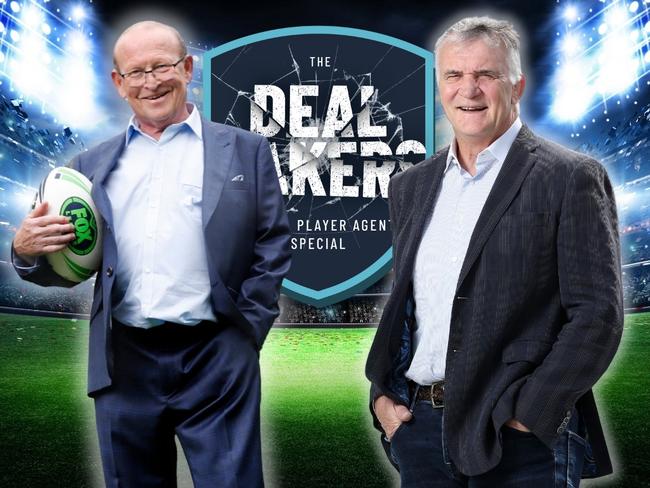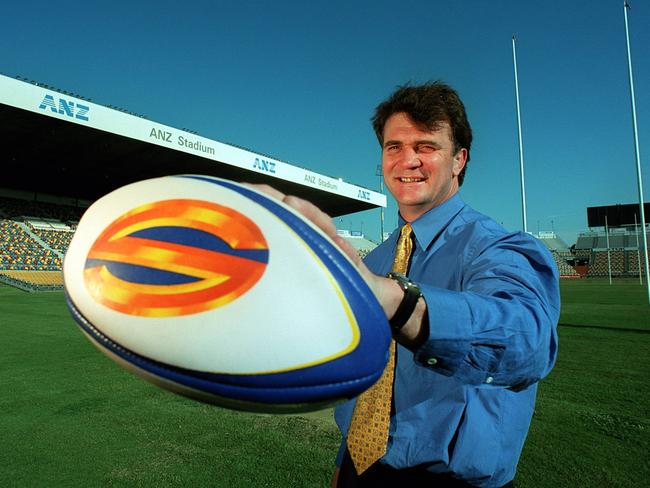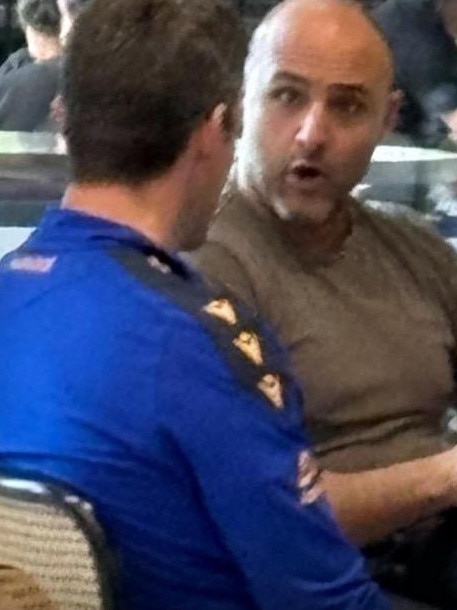Good guys v shonky operators: 50 years of NRL player agents’ secrets
Most player agents are decent and honourable. But after 50 years of covering rugby league, Phil “Buzz” Rothfield reveals a small group of shonky operators are a cancer on the game with their dirty dealings.
Old Super League boss John Ribot doesn’t have a lot of time for certain player managers.
“There were some I had to deal with that made me feel like going home for a shower,” he said.
“You just felt dirty afterwards.”
For the past week CODE Sports has carried out an investigation into the NRL agents, revealing their extraordinary power and influence across the 17 NRL clubs.
In almost 50 years of covering rugby league, I’ve found most agents are decent and honourable. However, there is a small group of shonky operators and disreputable types who are a cancer on the game with their dirty dealings and dodgy ways of doing business.
Even now, no one wants to go on the record to talk about it because these agents know where all the bodies are buried from years of suspect salary cap transactions.
SUPER LEAGUE
The power of player agents was never more evident during the war between the ARL and News Corp.
Ribot made the fatal mistake of not getting the managers on board at the beginning. It cost him dearly.
Agents were kept in the dark as Super League launched its initial signing raids in Townsville and Perth in the first 24 hours of the war.
Players being offered hundreds of thousands of dollars on the spot in hotel rooms didn’t need their advisers to understand the money was too good to refuse.
It would come back to bite Ribot and Super League.
The majority of managers then took sides with the ARL to deliver the players who would save the traditional competition.
Ribot now claims the managers got kickbacks from the ARL, although it is strongly denied by former ARL boss John Quayle and a number of managers I have spoken to.
“I heard they were getting paid to deliver players,” Ribot said, “and we wouldn’t entertain that.

“We could have been more aggressive, but ethically it’s a touchy one and not the right thing to do.”
Quayle insists this was not the case.
“I never once paid a manager,” Quayle said.
“A lot of the agents had a close association with Phil Gould and Bozo (Bob Fulton) who were recruiting for us, and that definitely helped us where Super League didn’t have those relationships.”
In hindsight, Ribot admits he should have got the managers on board earlier.
“In something as disruptive as Super League you had to do things a little bit differently and working with them had merit,” he said.
“But dealing with managers is one part of the game I’ve never enjoyed.
“There are some really good ones but there are others … some of the things they’d ask for … you just can’t do it. I can assure you they didn’t always have the best interests of their players in mind.”
This is why Ribot is now a strong supporter of the NRL’s plans to introduce reform around the agents.
“It’s an area of the game the NRL has got to clean up,” he said.
“It’s not run as efficiently or as reputably as it should be.
“You’ve got to put parameters around them and make them all accountable.”
Influential Rabbitohs boss Blake Solly agrees.
“The requirements for initial accreditation need to be improved and more stringent,” Solly said.
“The role of agents in supporting the wellbeing, education and financial health of players also needs to be strengthened. The best agents are already on top of these areas.”

PARENT TRAP
Some agents have been known to take advantage of impoverished families.
I’ve heard stories of them paying struggling parents as much as $10,000 to get their son’s signature.
These are vulnerable mums and dads who are renting a small home and are flat out even putting food on the table. The $10,000 is gold to them.
The agent will find a kid in junior reps or at a schoolboy carnival where they are competing with other managers for the best talent.
The payment to the parents is a small investment on a junior who is potentially worth millions.
THE LEAK
Agents have other ways of attracting talent. What about this one …
A journalist had a 16-year-old son playing juniors, who was a special talent. Three managers were trying to sign him.
So one of the agents, to get the dad onside, starts leaking stories to him. Even to the detriment of one of his own players.
When one of the agent’s off-contract stars turned up for a private meeting with a rival club, the journo was there with a photographer to get the exclusive.
The player was filthy that he’d been caught out. He had no idea his own agent had leaked the details and venue for the secret meeting.
It backfired on the agent. The player left him for a rival manager.
And, from that day, the journo didn’t trust him and signed up with another agent.
THE MEDIA
Managers are the best contacts for rugby league journalists.
And they love to take advantage of that. Some they control like puppet masters.
The twice deregistered Isaac Moses recently escaped criticism in some areas for his appalling handling of the Lachlan Galvin negotiations at the Wests Tigers because the journos want to stay onside to get the first interview with the Wests Tigers five-eighth or the next signing story from his Cove Agency.
Even Moses’ threat that Mitchell Moses would boycott 100% Footy last week unless SMH reporter Michael Chammas was removed from the panel attracted little criticism outside of this column.


THE GOOD GUYS
The number of honest and reputable managers far outweighs the bad ones.
It is a 24/7 job. Their phones are never off. Footy players will always have their issues.
We only see them for 80 minutes each week.
Away from the spotlight they’re dealing with relationship bust-ups, religious struggles, drug, alcohol or gambling problems.
As one agent told me, “Finding a club and signing a contract is the easy part.
“There are injuries, concussions, off-field indiscretions and never-ending disappointments. Being a confidante, a role model, a mentor and a friend is so important.
“And away from football is about assisting players with asset building, financial planning, tax advice and everything else that will set them up for the future.”
Player agents are rugby league’s gatekeepers, capable of building careers, brokering deals or breaking trust.
The NRL has a chance to rein in the dodgy few who taint the game, and Ribot’s right — parameters and accountability can’t wait.
The NRL must act now, or the game’s soul will pay the price.






To join the conversation, please log in. Don't have an account? Register
Join the conversation, you are commenting as Logout